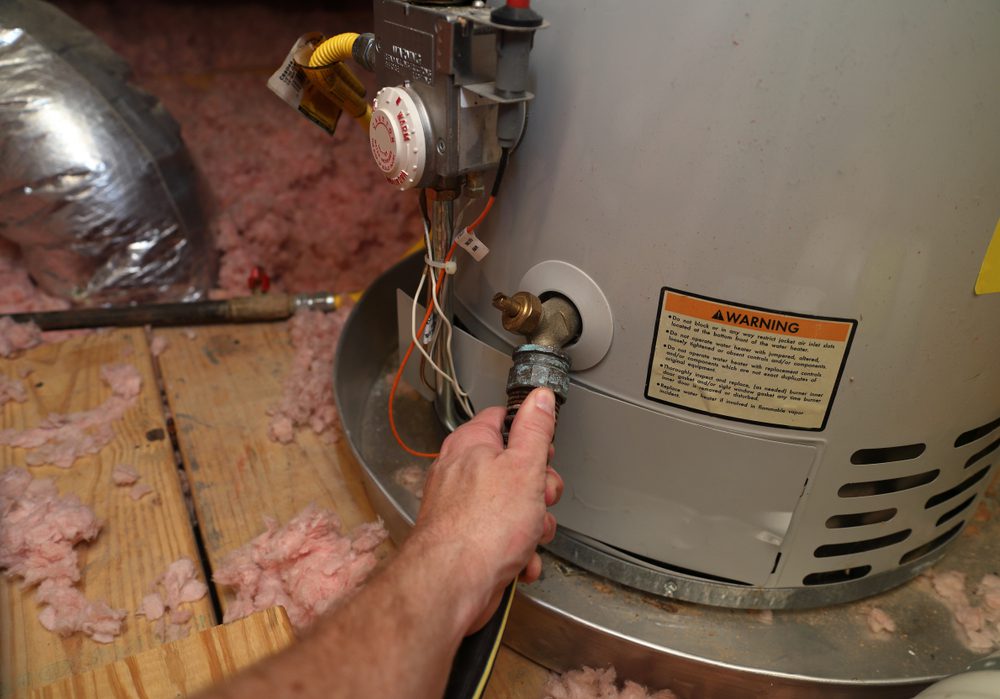Managing the Primary Water Heater Urgencies
Managing the Primary Water Heater Urgencies
Blog Article
Almost everyone seems to have their own individual assumption involving The Importance of Water Heater Maintenance.

A hot water heater is among one of the most essential standard appliances that can be discovered in a residence. With hot water heater, you don't require to experience the stress and anxiety of heating water manually each time there is a demand to take a bath, do the laundry, or the dishes. However, there is constantly a possibility that your hot water heater would act up just like many mechanical devices.
It is important to note any type of little malfunction and also tackle it quickly before things get out of hand. Many times, your water heater starts to malfunction when there is a build-up of debris as a result of continuous usage. As a precaution, routine flushing of your water heater is recommended to prevent sediment build-up as well as protect against practical failure.
Typical hot water heater emergencies as well as exactly how to take care of them
Leaky water heater tank.
A dripping tank could be a sign of rust. It could create damages to the flooring, wall as well as electric gadgets around it. You can also be at danger of having your apartment flooded. In this circumstance, you need to turn off your hot water heater, allow it to cool off, and thoroughly search for the resource of the trouble. At times, all you need to do is to tighten a few screws or pipe connections in cases of minor leaks. If this does not work as well as the leak lingers, you might need to use the services of a technician for an ideal replacement.
Rising and fall water temperature level.
Your hot water heater could start creating water of various temperatures generally ice hot or cool hot. In this scenario, the first thing you do is to make certain that the temperature is readied to the wanted degree. If after doing this, the water temperature keeps altering during showers or various other activities, you might have a defective thermostat. There may be a requirement to replace either the home heating or the thermostat device of your hot water heater.
Insufficient warm water
Managing a not enough supply of hot water can be aggravating. It might be that the hot water heater can not support the warm water demand for your house. To deal with this trouble, you can attempt to adjust your heating unit's temperature level dial and also wait for a few mins. You can ask for the assistance of a specialist plumber if the problem persists. You can update your water heating unit to one with a larger ability.
Stained or stinky water
When this happens, you need to recognize if the concern is from the storage tank or the water resource. If there is no funny smell when you run cool water, then you are specific that it is your water heater that is malfunctioning. The smelly water can be caused by rust or the build-up of microorganisms or debris in the water heating system container.
Final thought
Some house owners ignore little warning and minor faults in their hot water heater system. This just leads to additional damages and a possible total break down of your device. You should deal with your hot water heater faults as soon as they come near stay clear of more costs and also unneeded emergency difficulties.
With water heating units, you don't require to go via the anxiety of heating water manually every time there is a requirement to take a bathroom, do the washing, or the meals. Your water heating system could start producing water of various temperatures generally ice scalding or cold hot. It might be that the water heating system can't support the warm water demand for your apartment. If there is no amusing smell when you run chilly water, then you are particular that it is your water heater that is defective. The odiferous water can be caused by rust or the buildup of bacteria or debris in the water heater storage tank.
Water Heater Burst: Why This Happens And What To Do Next
Water Heater Explosion Warning Signs
Since storage water heaters are made of metal and store large volumes of heated water, they carry an increased risk of leaking or even exploding as they begin to rust at the fittings and seams over time. If the thermostat controlling the water temperature within the tank is faulty, or if mineral buildup inside the water heater prevents the thermostat from sensing the water’s temperature correctly, the water could become overheated. This will expand its volume within the tank, causing it to press at the tank’s fittings and seams. If these fittings and seams are rusted or corroded, the pressure could result in a leak or even an explosion.
Here are some risk factors and warning signs of an increased risk of water heater leak or explosion:
Your water heater is more than 10 years old. Your water heater makes clanking, banging or rumbling noises as it heats up, indicating that sediment has built up and hardened inside the tank. There is visible rust on the outside of the water heater, especially located at the pipe fittings or the seams that run down the tank. There is rusty water coming from your water heater, indicating that there may be rust building up inside. Your water heater is leaking, which could indicate either a crack somewhere in the tank or a malfunctioning temperature-and-pressure (T&P) relief valve. What To Do When Water Heater Leaks
If you find water dripping or seeping out of your water heater, or pooling around it, it means your water heater is leaking. If you find a leak, it may be best to call a plumbing professional to diagnose the problem and determine how best to handle it. If you choose to tackle it on your own, there are a few things you can do.
TURN OFF THE POWER
Next, shut off the power to the hot water tank at your home’s electrical breaker box. If you don’t shut off the power, the heating elements within the tank could continue to stay hot, which could pose a fire risk.
If you have a gas-powered water heater, you’ll also need to shut off the gas line leading into the tank.
FIND THE LEAK
Now it’s time to determine where the leak is coming from. Likely locations are the T&P valve, the drain valve or one of the pipes or fittings that feed into the top of the tank. If you see any rust or corrosion on the outside of your water heater’s tank, pipes or fittings, these could also be the source of the leak.
REPAIR THE LEAK
Once you determine the source of your water heater leak, you’ll have a better idea of what steps you need to take to fix the problem. It may be a simple fix—such as using a wrench to tighten fittings or replacing the T&P valve—but it may be something more complicated. You may even need to drain the tank, remove the water heater and install a new one.
https://www.abchomeandcommercial.com/blog/water-heater-burst/

I am just very inquisitive about Common Hot Water Heater Problems and I'm hoping you appreciated my blog entry. Enjoyed reading our entry? Please share it. Help someone else check it out. Many thanks for going through it.
Protect your space! Report this page